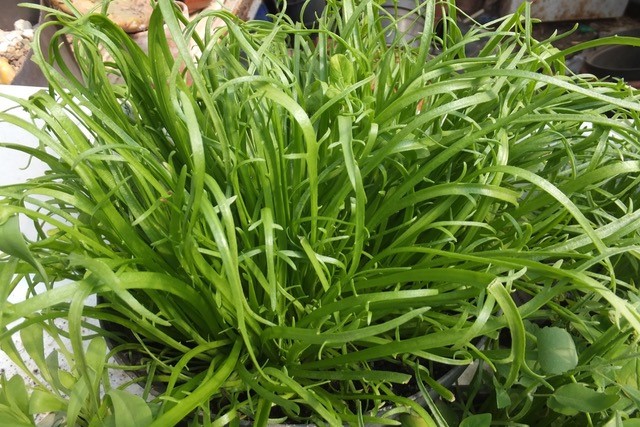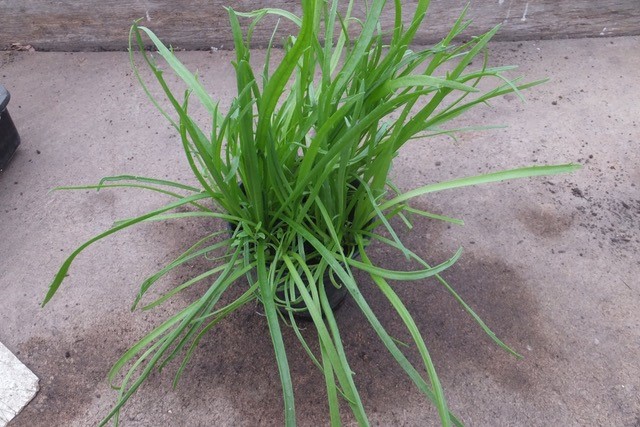
One of our tastier re-discovered culinary delights is a simply grown salading that may be harvested all year round within the protection of a cold greenhouse. Easy to grow from seed this weirdly shaped leaf resembles a blade of grass with irregular teeth somewhat like those on a saw or swordfish. Fortunately these are as soft and succulent as the rest of the leaf and not at all thorny.
A hardy biennial or short lived perennial native of dry bare sandy soils this is most often found near coasts. The seaside influence gives this a tolerance for poor soils and salt, and a valuable mineral content.
Unfortunately because of this maritime ancestry full grown plants become rather strongly flavoured, a tad tough and leaves may be downy so less appealing. However grown in successional small batches harvested while still young the leaves are delightfully crunchy and succulent with a mild flavour, savoury, similar to celery or parsley. These are excellent in mixed salads, included in stir-fries, or flash fried in tempura or beer batter.

Sow batches every two or three weeks, thinly onto sandy compost, barely cover, and water. Germination and growth is nearly as rapid as with Rocket in the warmer months, though in winter surer and faster with a propagator. From sowing on it’s maintenance free other than watering which needs to be reliable as this is a thirsty crop when making those leaves succulent and crunchy.
Start cutting when the first leaves are but a few centimetres tall, with each batch giving several donations over many weeks. In fact plants can be near perennial though for much better quality sow smaller batches more often and discard after the first couple of cuts. Just as we should practice with Rocket and other similar saladings.
The only drawback with this gourmet treat is confusion of names, none of which are that memorable, descriptive or enticing. Thus it’s known in different countries as Minutina, Herba or ‘erba Stella, Star-of-the-earth, and Bucks Horn or Buckshorn plantain. Finally the Latin Plantago coronopus reveals this to be a close relative of the despised lawn Plantain, which is again hardly appealing. I call it Dragon Grass when serving friends, but sadly that name is taken by Ophiopogon, and I’d really not want you to try and eat that!


